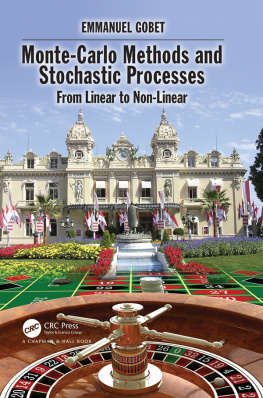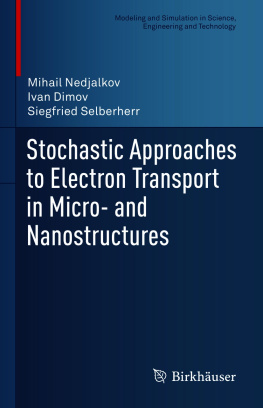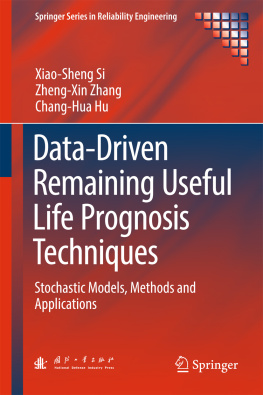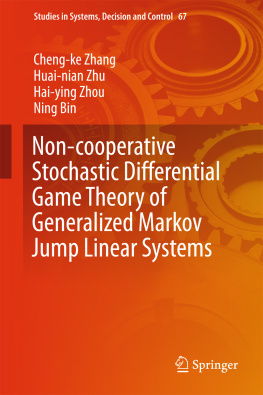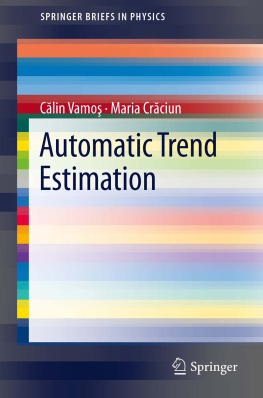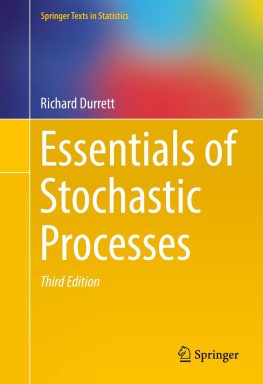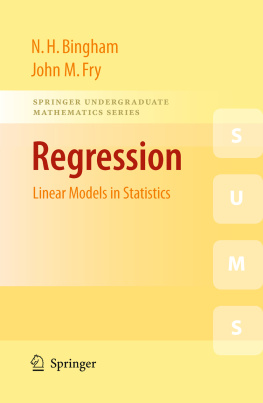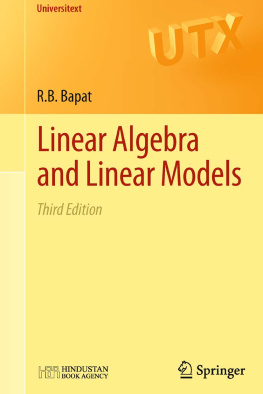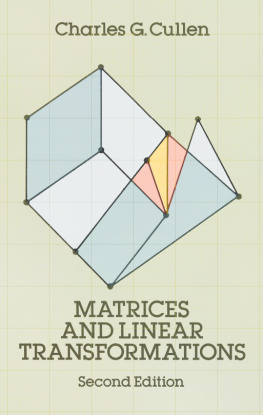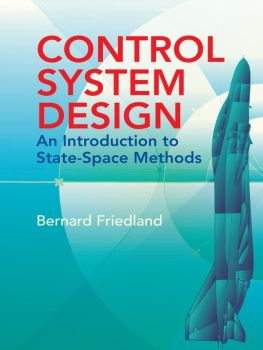Gobet - Monte-Carlo methods and stochastic processes: from linear to non-linear
Here you can read online Gobet - Monte-Carlo methods and stochastic processes: from linear to non-linear full text of the book (entire story) in english for free. Download pdf and epub, get meaning, cover and reviews about this ebook. year: 2016, publisher: Chapman & Hall/CRC, genre: Home and family. Description of the work, (preface) as well as reviews are available. Best literature library LitArk.com created for fans of good reading and offers a wide selection of genres:
Romance novel
Science fiction
Adventure
Detective
Science
History
Home and family
Prose
Art
Politics
Computer
Non-fiction
Religion
Business
Children
Humor
Choose a favorite category and find really read worthwhile books. Enjoy immersion in the world of imagination, feel the emotions of the characters or learn something new for yourself, make an fascinating discovery.
- Book:Monte-Carlo methods and stochastic processes: from linear to non-linear
- Author:
- Publisher:Chapman & Hall/CRC
- Genre:
- Year:2016
- Rating:3 / 5
- Favourites:Add to favourites
- Your mark:
- 60
- 1
- 2
- 3
- 4
- 5
Monte-Carlo methods and stochastic processes: from linear to non-linear: summary, description and annotation
We offer to read an annotation, description, summary or preface (depends on what the author of the book "Monte-Carlo methods and stochastic processes: from linear to non-linear" wrote himself). If you haven't found the necessary information about the book — write in the comments, we will try to find it.
Gobet: author's other books
Who wrote Monte-Carlo methods and stochastic processes: from linear to non-linear? Find out the surname, the name of the author of the book and a list of all author's works by series.
Monte-Carlo methods and stochastic processes: from linear to non-linear — read online for free the complete book (whole text) full work
Below is the text of the book, divided by pages. System saving the place of the last page read, allows you to conveniently read the book "Monte-Carlo methods and stochastic processes: from linear to non-linear" online for free, without having to search again every time where you left off. Put a bookmark, and you can go to the page where you finished reading at any time.
Font size:
Interval:
Bookmark:
CRC Press
Taylor & Francis Group
6000 Broken Sound Parkway NW, Suite 300
Boca Raton, FL 33487-2742
2016 by Taylor & Francis Group, LLC
CRC Press is an imprint of Taylor & Francis Group, an Informa business
No claim to original U.S. Government works
Printed on acid-free paper
Version Date: 20160509
International Standard Book Number-13: 978-1-4987-4622-9 (Hardback)
This book contains information obtained from authentic and highly regarded sources. Reasonable efforts have been made to publish reliable data and information, but the author and publisher cannot assume responsibility for the validity of all materials or the consequences of their use. The authors and publishers have attempted to trace the copyright holders of all material reproduced in this publication and apologize to copyright holders if permission to publish in this form has not been obtained. If any copyright material has not been acknowledged please write and let us know so we may rectify in any future reprint.
Except as permitted under U.S. Copyright Law, no part of this book may be reprinted, reproduced, transmitted, or utilized in any form by any electronic, mechanical, or other means, now known or hereafter invented, including photocopying, microfilming, and recording, or in any information storage or retrieval system, without written permission from the publishers.
For permission to photocopy or use material electronically from this work, please access www.copyright.com (http://www.copyright.com/) or contact the Copyright Clearance Center, Inc. (CCC), 222 Rosewood Drive, Danvers, MA 01923, 978-750-8400. CCC is a not-for-profit organization that provides licenses and registration for a variety of users. For organizations that have been granted a photocopy license by the CCC, a separate system of payment has been arranged.
Trademark Notice: Product or corporate names may be trademarks or registered trademarks, and are used only for identification and explanation without intent to infringe.
Visit the Taylor & Francis Web site at
http://www.taylorandfrancis.com
and the CRC Press Web site at
http://www.crcpress.com

This book originates from a third-year course on Monte-Carlo methods at Ecole Polytechnique University Paris Saclay. A version in French, with less material, is published by Editions de lEcole Polytechnique.
In fact, several Monte-Carlo methods exist. They all use random simulations, but they can be quite different in their techniques and objectives. It is not possible to present and analyze in detail all the existing methods in only one course. For this reason, I have made two choices.
The core of the book is related to the simulation of stochastic processes in continuous time and their link with partial differential equations. Although this link between Brownian motion and the heat equation goes back a century, the computational probabilistic aspects developed later. Progress in data-processing in the 1980s facilitated the task of researchers and engineers to test the algorithms, to improve them, to develop new ones, to strive to numerically simulate complex systems, and to increase the accuracy or the speed of simulation.
The Monte-Carlo methods for the simulation of stochastic differential equations have many applications in biology (Wright-Fisher model), finance (valuation of options), geophysics (porous media), random mechanics (moving solid under random forces), fluid mechanics (Navier-Stokes equation for vorticity), etc. In , we will study some related methods of simulation.
Since the end of the 1990s, important progress has been made in the field of non-linear processes in connection with problems of control or modeling of interaction. This is connected to topical issues, in research and in applications (chemistry, ecology, economy, finance, neurosciences, material physics, etc); we devote gathers the basic tools of simulation and analysis of algorithm convergence.].
The problem of numerical integration and computation of expectation EX by the Monte-Carlo method is developed in this book thoroughly. A focus is made on the case where X is a path functional of a stochastic process in continuous time, possibly with non-linear dynamics.
Synopsis. The book is organized in three parts of progressive difficulty.
- Part A: Toolbox for Stochastic Simulation. The practice of random simulation requires the ability to simulate appropriate random variables. It is studied in tackles the question of acceleration of convergence (variance reduction methods). We emphasize the methods of importance sampling, whose application to the evaluation of rare events is spectacular.
- Part B: Simulation of Linear Processes. , we study the related statistical errors, the methods of variance reduction, and the multi-level Monte-Carlo methods.
- Part C: Simulation of Non-Linear Processes. The objective of the last part is to study non-linear dynamics, a field which is currently developing quickly, with a focus on their simulation. We present three generic non-linearities: backward equation and control, branching process, and mean-fields interaction. In .
At the end of each chapter, we provide some exercises of a theoretical or programming nature. Solutions and complementary material are available on the website
http://montecarlo-polytechnique.blogspot.com
Throughout this book, we emphasize the main algorithms, the most are generally not taught at the level of a masters program, but we have made a quite significant pedagogical effort to demystify them and make them available (in a simplified but not denatured form) to masters students. Proofs of results are usually given, some only outlined, but we often choose the simplest presentation and we try to use the arguments requiring fewer mathematical prerequisites.
Nevertheless, this is a quite demanding textbook of applied mathematics, covering a broad spectrum of advanced and sometimes very modern tools of probabilities, statistics and partial differential equations, with systematic computational concerns regarding numerical efficiency. Moreover, we encourage readers to implement the algorithms in order to develop their own computational intuition: this is certainly an important skill for mastering and understanding the theory. Moreover, the reader should keep in mind that even if an algorithm converges theoretically quicker than another, it may be that its execution time is much longer, and that it is actually less efficient: thus, comparing a convergence speed or an error variance is not all that is required; computational time and memory requirements may be significant features, which can be assessed only by implementing the method on a computer.
Our presentation of algorithms assumes that the implementation is made sequentially on a machine with a single processor. It is clear that the implementation on parallel architecture could be performed alternatively, and this is also an active field of research.
Last, it is difficult to be very original on such a classic subject on Monte-Carlo method and this Ecole Polytechnique course took, as a starting point, that of my predecessors (in particular L. Elie, C. Graham, B. Lapeyre, D. Talay). I would like to thank my colleagues who have encouraged me to transform my lecture notes into a published book. I especially thank P. Del Moral, S. De Marco, M. Gubinelli, and B. Jourdain for their feedback on a first version of this book. Thank you also to U. Stazhynski for his assistance in the translation from the French version to the English one.
Emmanuel Gobet, Paris Saclay
Font size:
Interval:
Bookmark:
Similar books «Monte-Carlo methods and stochastic processes: from linear to non-linear»
Look at similar books to Monte-Carlo methods and stochastic processes: from linear to non-linear. We have selected literature similar in name and meaning in the hope of providing readers with more options to find new, interesting, not yet read works.
Discussion, reviews of the book Monte-Carlo methods and stochastic processes: from linear to non-linear and just readers' own opinions. Leave your comments, write what you think about the work, its meaning or the main characters. Specify what exactly you liked and what you didn't like, and why you think so.

